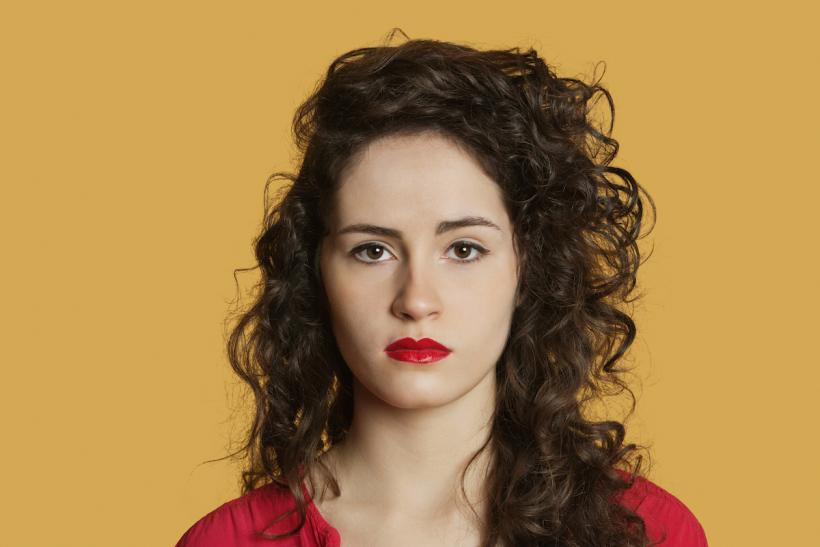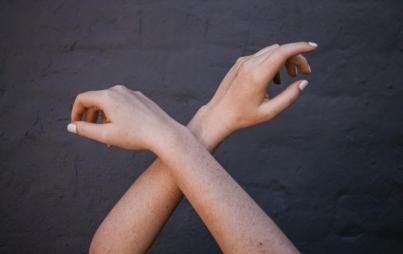
Sometimes, I feel like I don’t measure up in the feminist or queer communities.
These days, the Internet is bursting at the seams with criticism. People can’t help but comment about how everyone else is “doing [insert your favorite, current, important cause/issue] wrong.” I’ve seen tweets such as this one: “RT if your feminism isn’t perfect, but you’re committed to taking actionable steps to do better,” and other less tactful examples of “call-out culture” and criticism related to people's’ activism. I think it is essential to be critical of our feminism and intersectionality, but I’m grappling with this tension between there being a right time and place for that type of dissection of identities and actions and the feeling of unstoppable momentum that makes our critical perspectives and need to improve even more imperative and time-sensitive.
Lately, I feel like our activism and our feminist communities are fractured and disjointed. We’re more divided than united. As I’m observing our work, our contributions feel primarily driven by shame, guilt, and a sense of obligation rather than by passion or an opportunity to make an impact. All the chatter about how poorly we’re doing our activism has compelled me to think about my own identities, values, and beliefs. This, combined with the numerous personal essays, opinion articles, and think pieces problematizing and praising the Women’s March, sparked my inquiry into my own feminism and queerness. Sometimes, I feel like I don’t measure up in the feminist or queer communities.
I’ve been struggling to understand if I’m a “bad queer” or a “bad feminist” and sometimes, I think I am!
Here are some reasons why:
I don’t like cats.
I used to think that liking cats was only correlated with feminism. A friend of mine corrected me. She told me, “No, you’re not a bad feminist because you don’t like cats; you’re a bad queer person.” As it turns out, cat loving is not exclusive to viral eHarmony videos and recluse old women. It is apparently, a prerequisite to being a good feminist and queer person. In defense of cats, I don’t really like any animals I don’t know and I’m allergic to them. So, I don’t like cats. I also don’t like cat photos.
If I have to use labels, I identify as asexual and panromantic, but I can’t stop talking about my “Future Jewish Husband” and children.
When I imagine my life, I see myself married to a Jewish, college-educated man. We have several children that are all biologically mine. However, when I fantasize about my life, I imagine all sorts of people and types of structures for my family. I imagine being attracted to someone primarily because of their intellectualism, personality, loyalty, and sense of self-awareness. I imagine a type of intimacy that grows more irreplaceable out of many hours of conversation and mutual respect. Still, the tired trope of my “Future Jewish Husband” prevails. It feels heavy on my tongue and so contradictory — also inevitable and “right” for me. This conventional seed was planted in my mind as early as I can remember understanding what marriage was (or that people are “supposed to get married”). I was socialized this way and it absolutely makes my feminist and queer identities squirm.
Everything becomes just a bit too murky to be comfortable. How is it that my expectations for myself conflict, directly, with my worldview and how I believe others should live — especially those whose identities don’t reside within the heteronormative spectrum?
I feel compelled to occupy all the spaces, and I can’t tell when I’m supposed to back off and let others dominate.
Sometimes, my white feminism is a problem. Sometimes, my level of education is exclusionary. I am attracted to “intellectual spaces,” and often the conversations I have in those communities are not as progressive as I’d hope for them to be. Sometimes, my Jewish identity and my understanding of my people’s history of oppression guides my actions in ways that aren’t always helpful. I feel like I want to be a good advocate for groups of marginalized people who are oppressed today, but my privilege, history, and experience often gets in the way. I’m enthusiastic and driven by the possibility of change, yet my actions are not always productive. I’m learning I can improve my activism by asking, “How can I help?," and then participating how I am asked to participate as opposed to how I think I can be most helpful.
I’m learning that there is value in stepping back as a way of stepping up. There is a level of self-awareness that almost radiates when someone can recognize their own skills and competency and understand how their actions change or perpetuate injustice.
I hate labels.
Feminism is swimming in labels and lingo. Often these words help us speak (literally) the same language. The lingo of feminism is exclusive. If you’re not keeping up with the buzzwords of this week’s feminism “hot topic,” you can’t fully participate. While sometimes labels center us on an even playing field, often they create fortress-like walls that folks need to infiltrate before they can comfortably claim the feminist label and gain access to this community.
For me though, I feel like labels box me in. They limit me. I feel like they portray a specific way that I am supposed to act and engage with people. I am just awkward and quirky enough that I love the fact that I often reside on the edge of any boundary that is set for me. I love to defy expectations! Perhaps this is immature, but labels annoy me. I hate being asked, “What are you?” or “How do you identify?” because I feel like however I answer influences everything a person expects of me moving forward. I feel like they don’t need to experience me anymore because they have already made their conclusions. I understand others feel like labels are inclusive, necessary, empowering, and important — does it make me a bad feminist or queer person (also labels) because I despise them?
I feel so charged to be a “good feminist,” fit into the queer community, and be an exceptional advocate, but I am starting to understand that I can’t be everything to everyone and sometimes I’m going to make mistakes. Instead, I want to embrace being the best representative of my experience that I can be, and prioritize listening to others’ experiences and learning from them about how I can be a collaborator in their activism efforts. I’m doing what I can to advocate for equity for all people!
I think the best we can do is practice being aware, willing to listen, open-minded, and eager to improve. My feminism isn’t perfect, but that doesn’t mean I’m a bad feminist. My queerness doesn’t fit into a neat box with expected behaviors. That’s the beauty of being queer. At the end of the day, everyone’s feminism is going to be a bit problematic.








